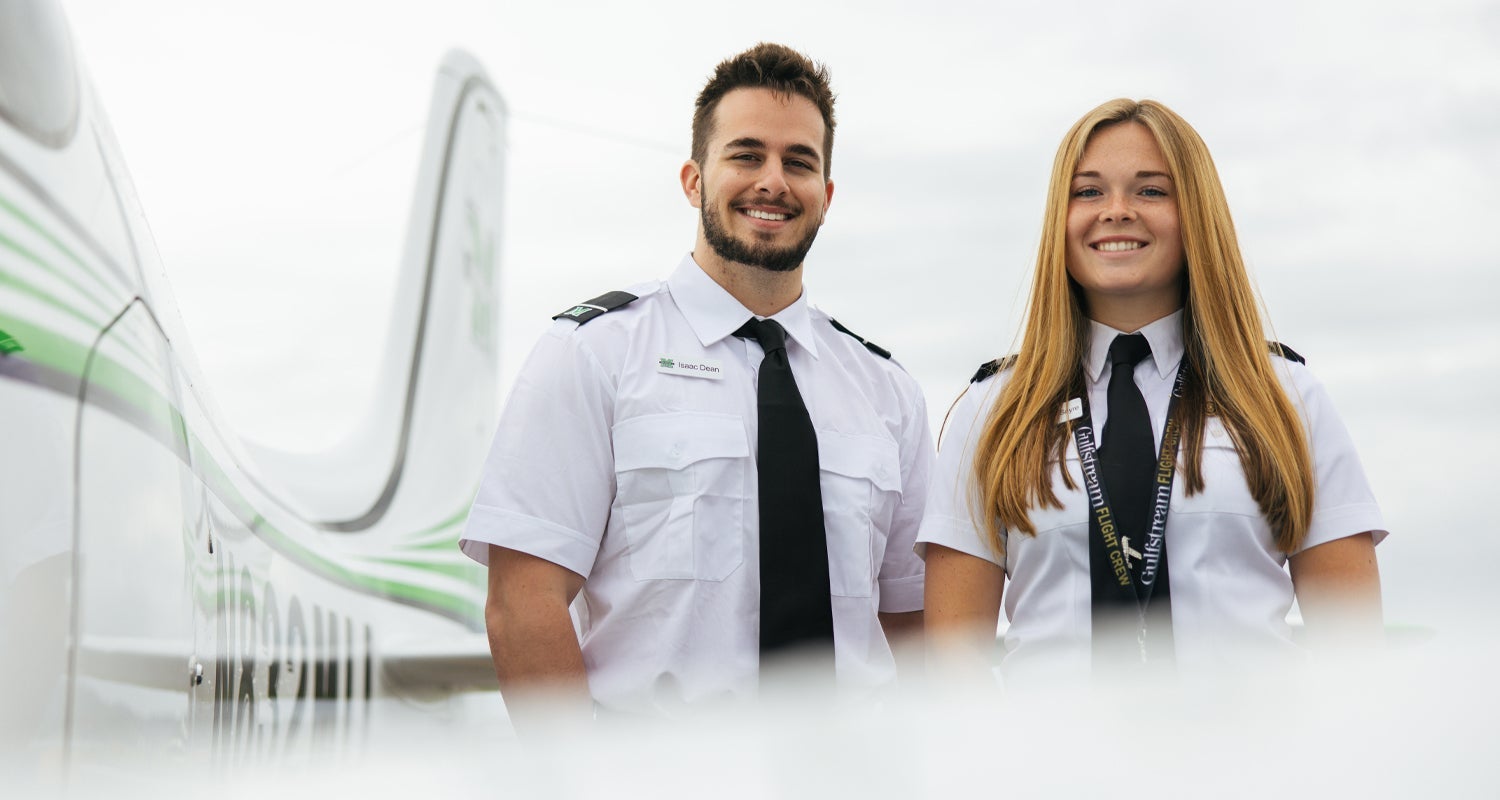
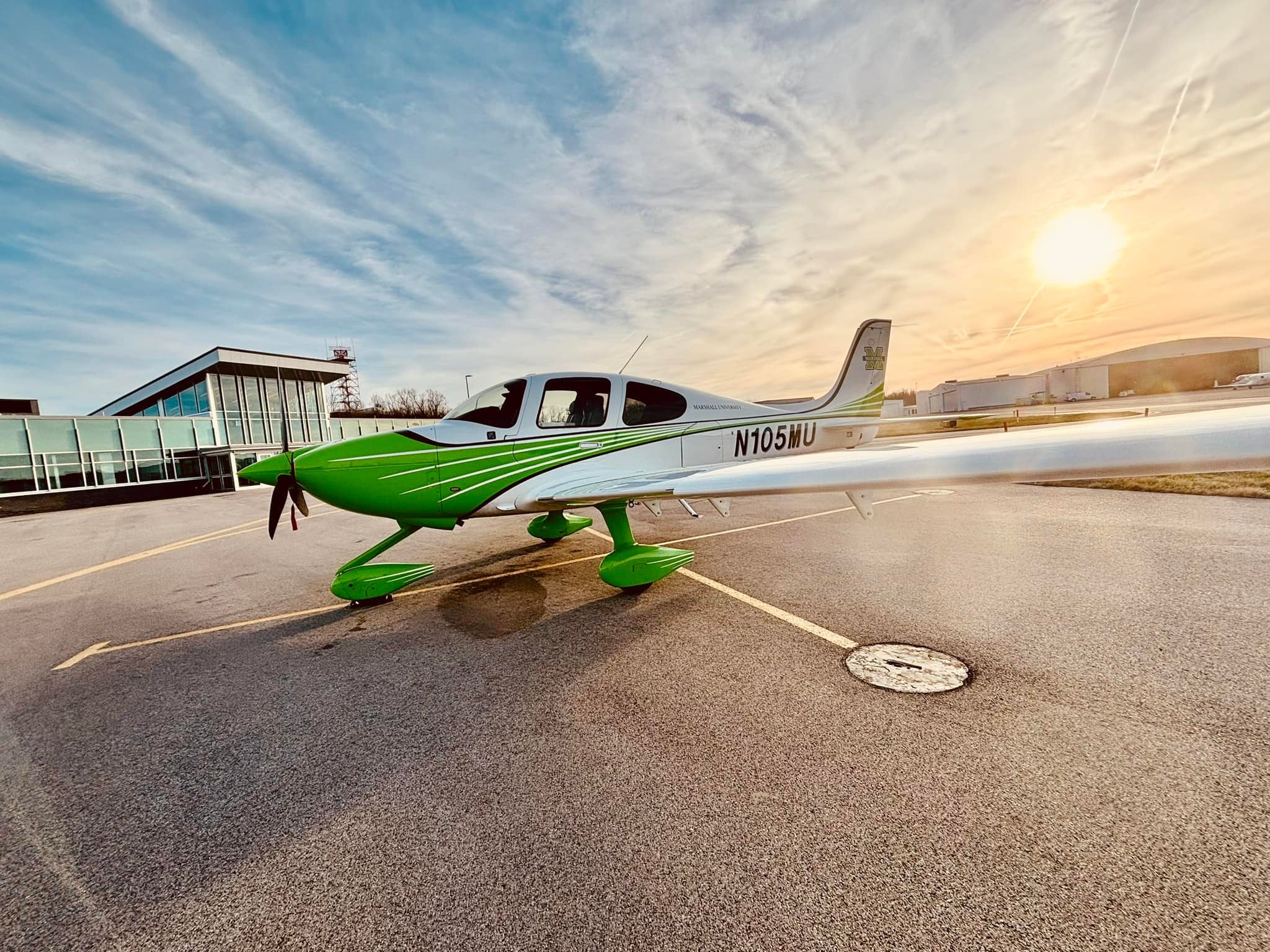
The Marshall University Bill Noe Flight School’s Professional Pilot, B.S., degree program will help meet the nation’s projected significant need for commercial pilots over the next 20 years. Marshall’s ground and flight courses lead to a series of FAA certifications and prepare graduates to become commercial pilots of single and multi-engine aircraft.
The program officially opened at Yeager Airport in Charleston, West Virginia in the Fall of 2021 and is growing each year. When in full operation, the Marshall University Bill Noe Flight School is expected to enroll more than 200 students and produce an estimated 50 commercial pilots annually.
Marshall Aviation’s Professional Pilot, B.S., degree program is also be available in Wheeling, W.V. and Martinsburg, W.V.. The program will expand to Lewisburg, W.V. in Fall 2025.
The involvement of Marshall alumnus and flight school executive aviation specialist Bill Noe means our program was developed by an aviation professional with decades of experience.
Our curriculum is designed to teach students the principles of aeronautics, navigation, flight control and communication systems, as well as the regulations governing commercial aircraft operation.
Based on national data, a pilot’s return on educational investment is considerable. Professional pilots enjoy a greater ROI (estimated at 55x) when compared to other popular professions that require specialized training, including attorneys, physicians and engineers (estimated at 30-40x).
Having a bachelor’s degree will open doors to additional career options in the aviation field, including opportunities in management and teaching.
New facilities for the FAA Part 141 pilot school, including a classroom building and hanger, opened in August of 2021 at Yeager Airport in Charleston, West Virginia.
Students complete the flight school’s FAA curriculum at the Bill Noe Flight School in Charleston, W.Va. and general education courses at Marshall’s South Charleston campus and/or through Marshall’s Online Learning program.
Marshall University’s Professional Pilot, B.S. degree is also available in Wheeling, W.V. through a partnership with West Liberty University and in Martinsburg, W.V. and Lewisburg, W.V. through a hybrid program offered by Marshall Aviation.
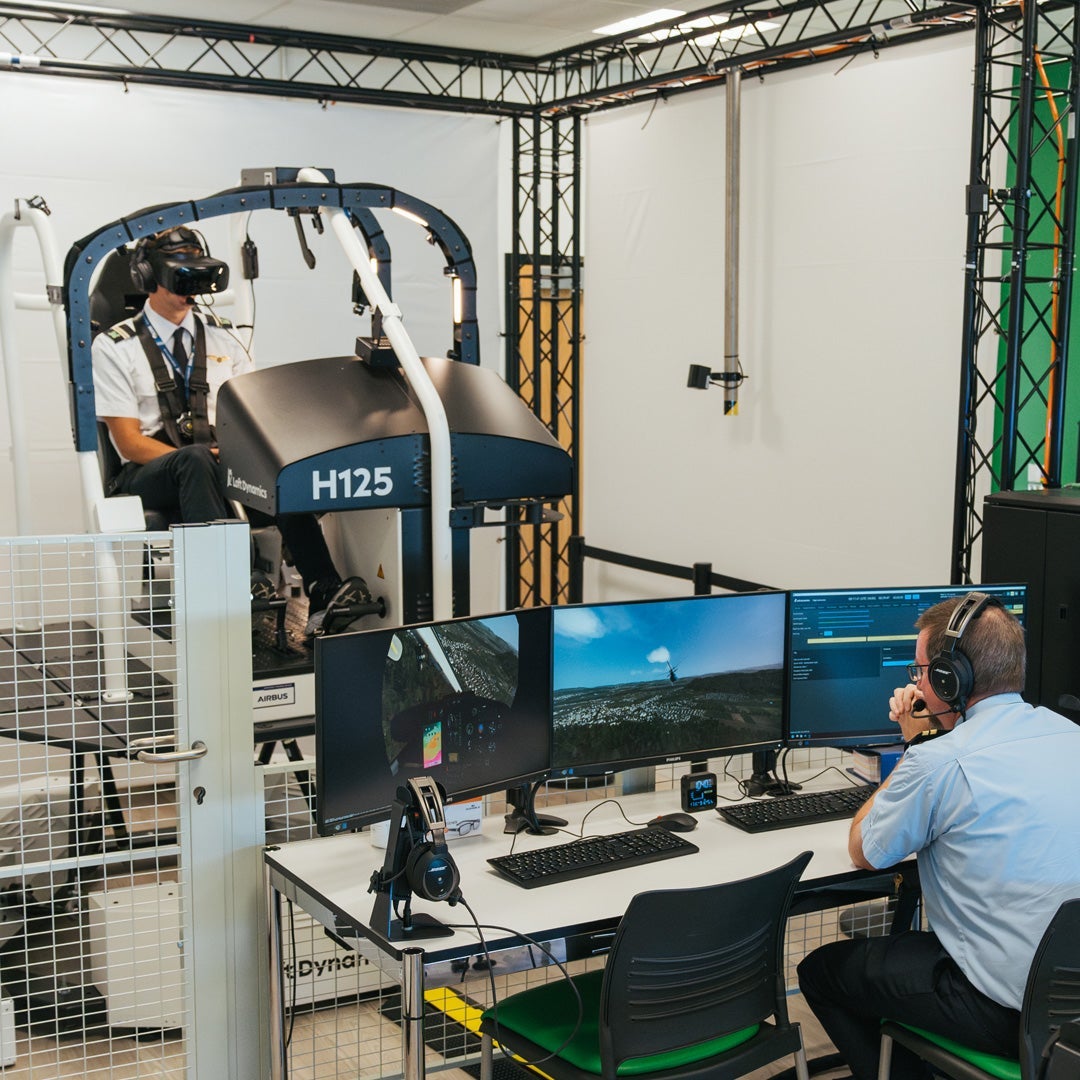
The Cirrus SR20 aircraft Marshall uses are single engine, state-of-the-art small planes ideal for student training. They are fully instrumented and have a variety of sophisticated avionics, including 10” display screens, a Garmin-outfitted cockpit, synthetic vision technology, all-digital Bluetooth audio, engine and fuel monitoring, dual alternators, and weather and traffic monitoring systems and navigation.
The composite 4-seater or 5-seater monoplanes feature a whole-airplane parachute that, when deployed in the event of an emergency, will safely lower the plane to the ground.
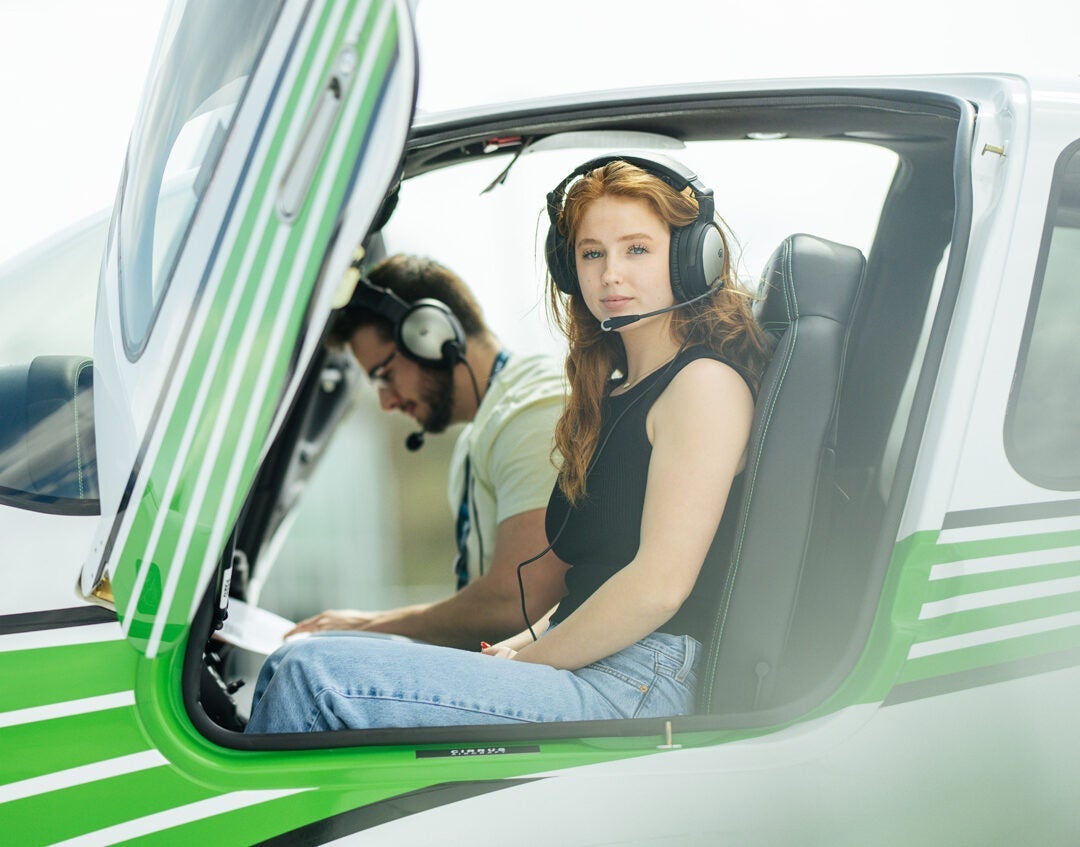
It is estimated that over the next two decades, 143,000 new pilots will need to be trained and ready to fly commercial airliners to meet the demand for air travel. According to the U.S. Bureau of Labor Statistics, overall employment of airline and commercial pilots was projected to grow 6% from 2018 to 2031.
The median annual wage for airline pilots, copilots and flight engineers was $202,180 in May 2021. The median annual wage for commercial pilots was $99,640.
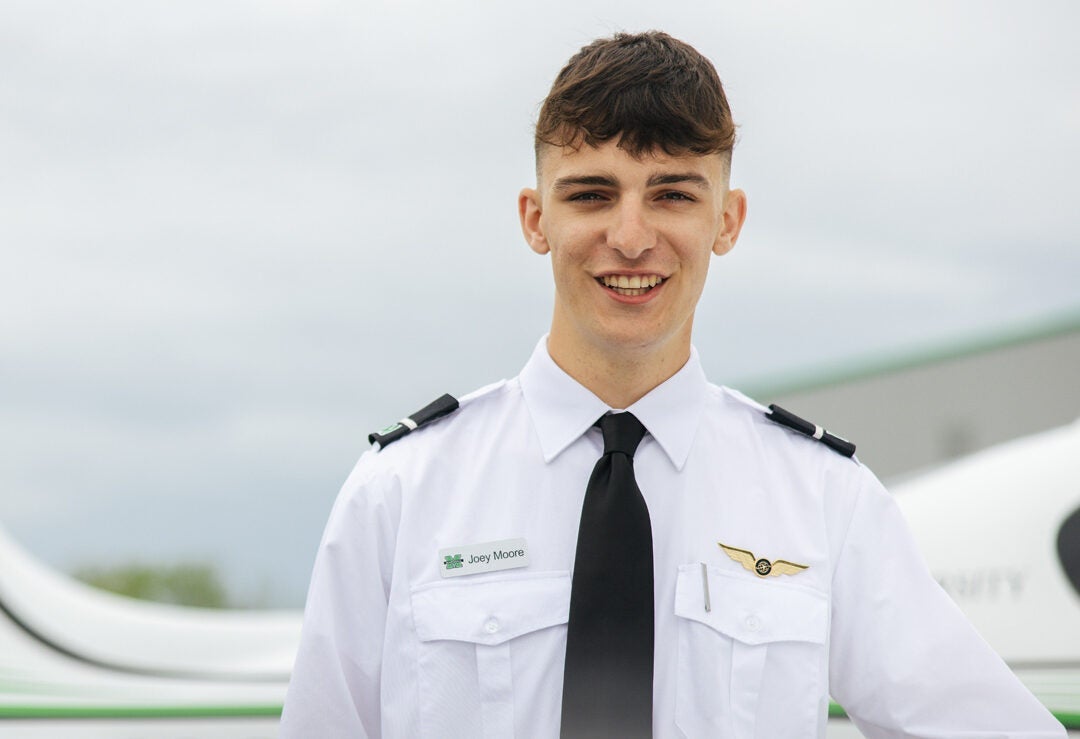
For initial consideration, all applicants must meet Marshall University’s general freshman or transfer admission requirements. Admission to the program will be selective each year, depending on both the number of applications received and the capacity to enroll new students. Not all applicants who qualify for general admission to the university will be admissible to this program.
Additionally, candidates for admission must provide proof of at least 20/20 vision or 20/20 corrected vision, and an FAA Medical Certificate by an Aviation Medical Examiner. Learn more about the BNFL admissions process.
*The Professional Pilot program is not eligible for Veterans Affairs benefits at this time.
- Receive information about our professional pilot program.
- Meet some of our current students and hear about their favorite Marshall moments.
- Receive invitations to special events for future students.
- Get help with the application and enrollment process.
If you don’t receive a response from us, please check your junk folder and spam filters.







